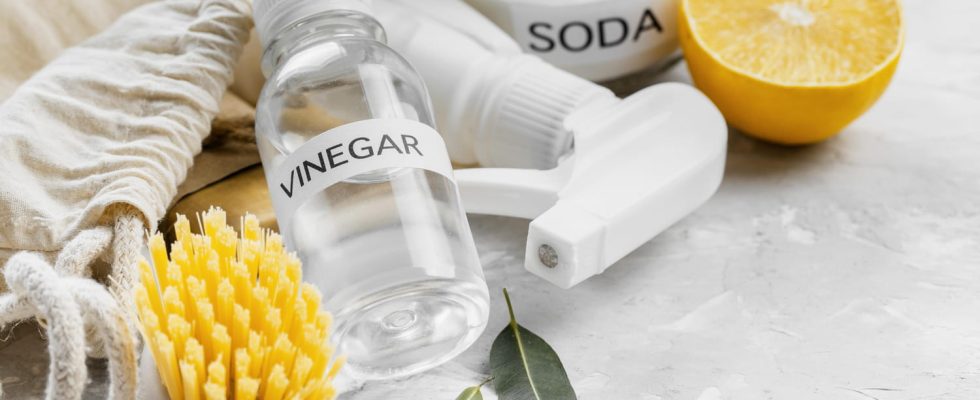This versatile cleaner has its limitations and should not be used to clean some common household items.
Distilled white vinegar is a cleaning staple that can be used for a variety of tasks, from washing windows to removing stains from shoes. However, versatile doesn’t mean universal, and when it comes to cleaning, there are common household items and materials that can be damaged by vinegar. Additionally, when mixed with other cleaning agents, including bleach, the acid in vinegar can cause toxic chemical reactions. Although vinegar is a cheap, non-toxic, and readily available cleaning agent, it is not suitable for all cleaning problems. Check out 10 things not to clean with vinegar below to avoid potential damage.
Anything that contains bleach
When bleach is mixed with vinegar, it causes a chemical reaction that creates toxic chlorine gases. This first rule is the most important. Never mix bleach, or products containing bleach, with vinegar under any circumstances.Marble, granite and other natural stone surfaces
Marble, granite and other natural stones, such as slate, used for home finishes such as countertops, floors and shower walls, or household objects such as table tops or service, should not be cleaned with vinegar. The acid in vinegar can cause pitting in natural stone.Tile joints
Unprotected or damaged gaskets should not be cleaned with vinegar, which can erode or wear them down over time, causing them to deteriorate. The protected joints can be cleaned with vinegar, but it is preferable to favor non-acidic cleaners to avoid weakening them.Stainless steel
To clean stainless steel knives, kitchen utensils and appliances, it is best to avoid vinegar and use a non-acidic cleaner. Prolonged exposure to the acids in vinegar can cause pitting of stainless steel.Waxed or unfinished wood
Cleaning waxed or unfinished wood with pure vinegar can cause discoloration and should be avoided. Instead, use diluted vinegar or opt for a non-acidic cleaning agent suitable for wood.Melting
Vinegar can attack the protective coating of seasoning that gives cast iron cookware its nonstick surface. Prolonged exposure to distilled white vinegar can cause pitting in the cast iron itself.Electronic
Television screens, mobile phones, computer monitors and other electronic devices should never be cleaned with vinegar or cleaning agents containing vinegar, as this will damage the anti-reflective coating.Rubber gaskets and hoses
Prolonged or repeated exposure to vinegar can cause rubber parts, such as gaskets and hoses, to disintegrate. Check the manufacturer’s instructions before cleaning household appliances like washing machines, refrigerators, or dishwashers with vinegar to make sure the type of rubber used is safe to be exposed to vinegar.Iron
An iron is another example of a household item that may or may not be safely cleaned with vinegar, depending on how it is made. Before using vinegar to descale an iron, check the directions to make sure it won’t cause irreparable damage to metal components.Pet damage
Vinegar isn’t ideal for cleaning up pet messes, especially on soft surfaces like carpets, upholstery, or mattresses. According to the Humane Society of the United States, using vinegar on pet messes is not recommended because “strong chemical odors can cause your pet to strengthen the urine mark in that area.” Instead, use an enzyme-based cleaning agent to deal with pet messes.
